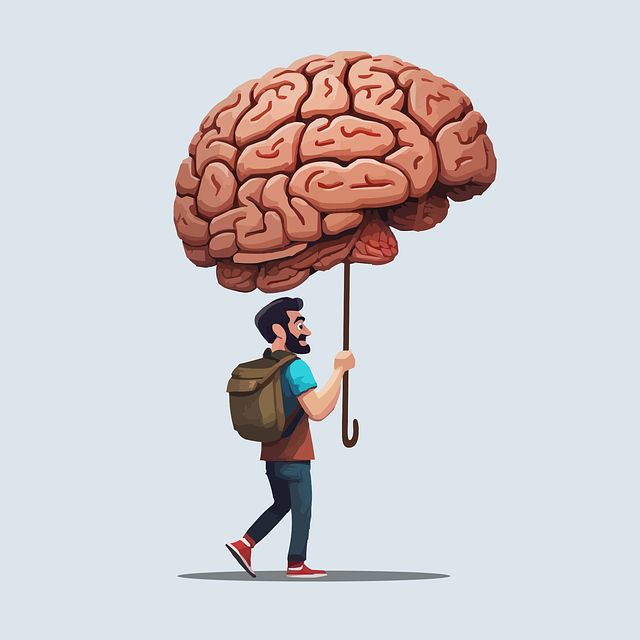Mental wellness apps, focusing on personalized therapy for parenting skills, are gaining popularity as digital therapeutic solutions for diverse mental health issues. These apps offer interactive modules, stress management tools, and online counseling to improve family resilience and user well-being. Developing such an app requires a strategic approach, market research, and evidence-based practices, with key functionalities including progress tracking, goal setting, and tailored recommendations for enhanced parenting skills.
In today’s fast-paced world, mental wellness apps are becoming indispensable tools for supporting families. Understanding Mental Wellness Apps: A Growing Need for Digital Therapeutic Solutions explores the rising demand for digital interventions, focusing on therapy for parenting skills. This article delves into designing effective features and functionality to cater to families’ unique needs. From identifying key requirements to the development process, we guide you through building user-friendly mental wellness apps that make a tangible difference in fostering healthier homes.
- Understanding Mental Wellness Apps: A Growing Need for Digital Therapeutic Solutions
- Designing Therapy for Parenting Skills: Features and Functionality to Support Families
- Development Process: Building an Effective and User-Friendly Mental Wellness App
Understanding Mental Wellness Apps: A Growing Need for Digital Therapeutic Solutions

Mental wellness apps are gaining prominence as a necessary digital therapeutic solution for various psychological and emotional challenges. These applications cater to a wide range of mental health concerns, from stress management and anxiety reduction to depression support and therapy for parenting skills. With the ever-increasing demand for accessible and convenient mental health resources, these apps offer an innovative approach to self-care and well-being.
The integration of technology in therapeutic practices allows for personalized experiences that cater to individual needs. Features such as interactive exercises, guided meditations, mood tracking, and access to professional support through online counseling have made these apps appealing to a diverse user base. Moreover, they provide an accessible platform for learning valuable skills like conflict resolution techniques, self-esteem improvement, and coping skills development, ultimately empowering users to take control of their mental health.
Designing Therapy for Parenting Skills: Features and Functionality to Support Families

Developing a mental wellness app focused on therapy for parenting skills can significantly contribute to building resilience within families and supporting their overall mental wellness. A well-designed app should offer personalized tools and resources that cater to the unique needs of parents, helping them navigate the challenges of modern family life. Features such as interactive modules on effective communication strategies, stress management techniques, and positive discipline methods can empower parents to create healthier environments for their children.
Functionality should include tracking progress through journaling, setting personalized goals, and receiving tailored recommendations based on individual needs. Integrating stress management exercises like mindfulness practices and relaxation techniques would enhance the app’s value, enabling users to cultivate a calmer mindset while caring for their loved ones. By combining engaging content with practical tools, these mental wellness apps can serve as valuable resources for parents seeking to improve their parenting skills and fortify their families’ emotional well-being.
Development Process: Building an Effective and User-Friendly Mental Wellness App

Developing a mental wellness app requires a thoughtful and iterative process to create an effective and user-friendly tool that supports individuals’ emotional well-being. The journey begins with defining the app’s purpose and target audience, ensuring it addresses specific needs like therapy for parenting skills or general mood management. Conducting thorough market research helps identify unique features and functionalities that set your app apart from competitors while keeping user experience at the forefront.
Next, a robust content strategy is developed, integrating evidence-based practices such as resilience building and emotional regulation techniques. User interface (UI) and user experience (UX) design play a pivotal role in fostering engagement, making complex therapy accessible through intuitive navigation and visually appealing designs. Regular testing and feedback loops involving both developers and potential users are essential to refining the app’s functionality, ensuring it aligns with the evolving needs of its audience.
Mental wellness apps, particularly those focusing on therapy for parenting skills, are becoming indispensable tools in modern digital healthcare. By integrating user-friendly features and evidence-based practices, these applications play a crucial role in addressing the growing need for accessible therapeutic solutions. As technology advances, developers must continue to innovate, ensuring these apps remain effective, engaging, and beneficial for users seeking improved mental well-being, especially within the context of family dynamics.














